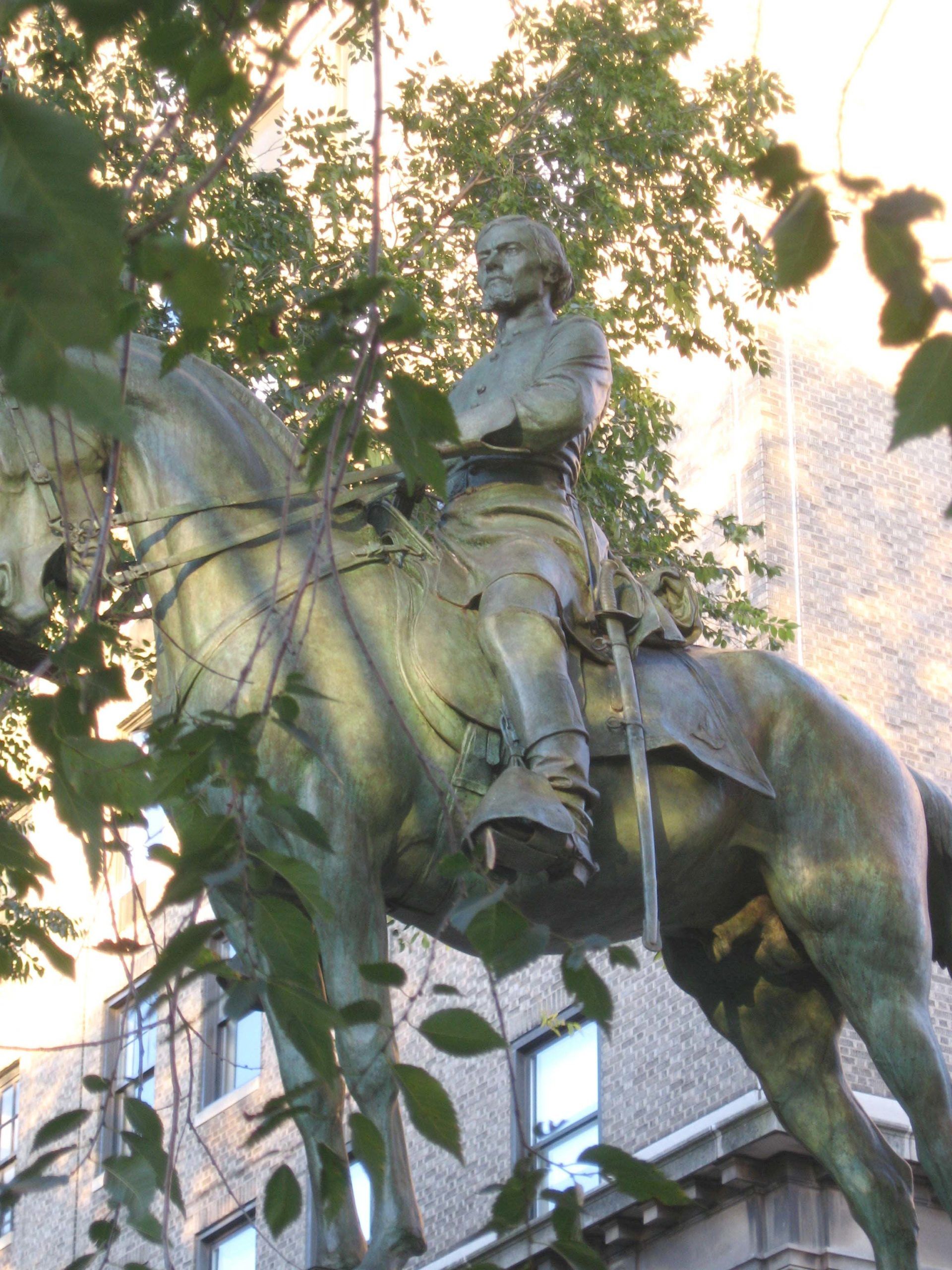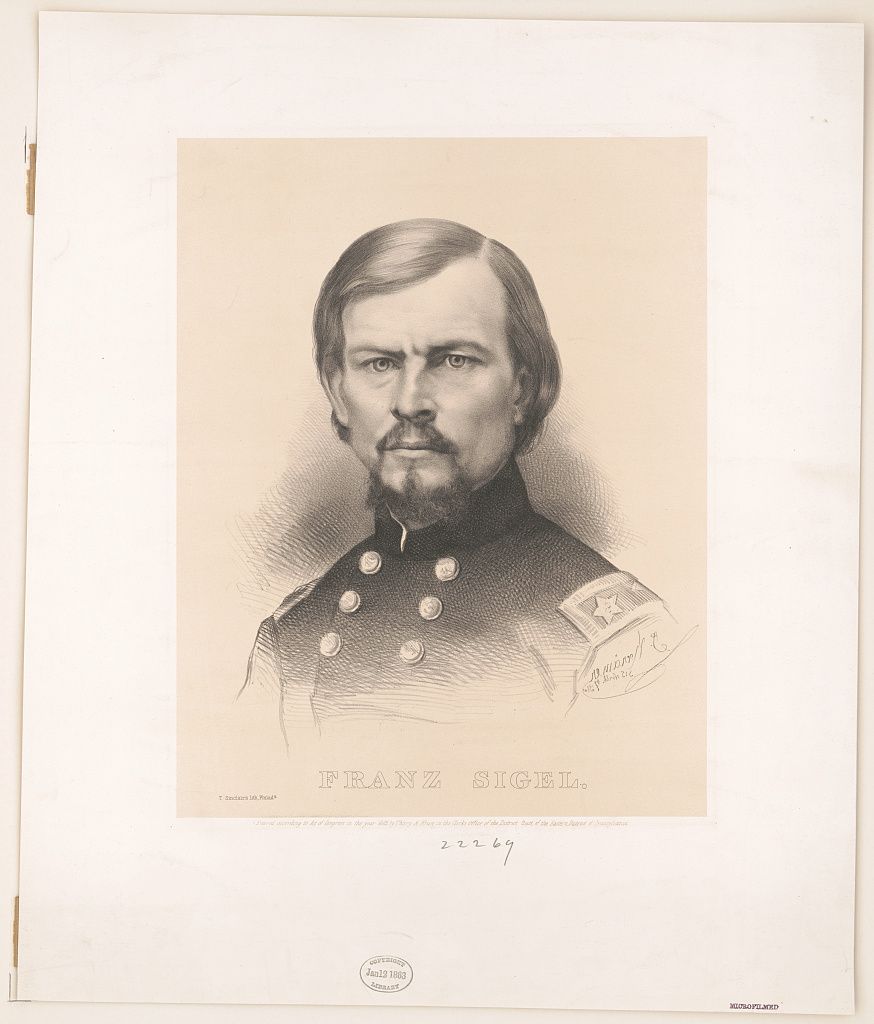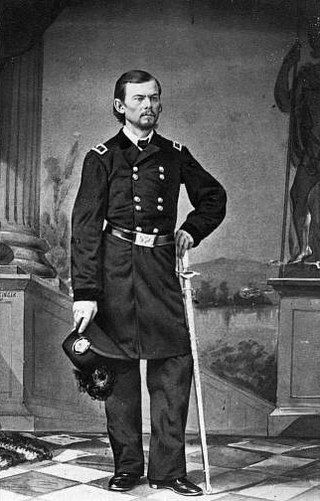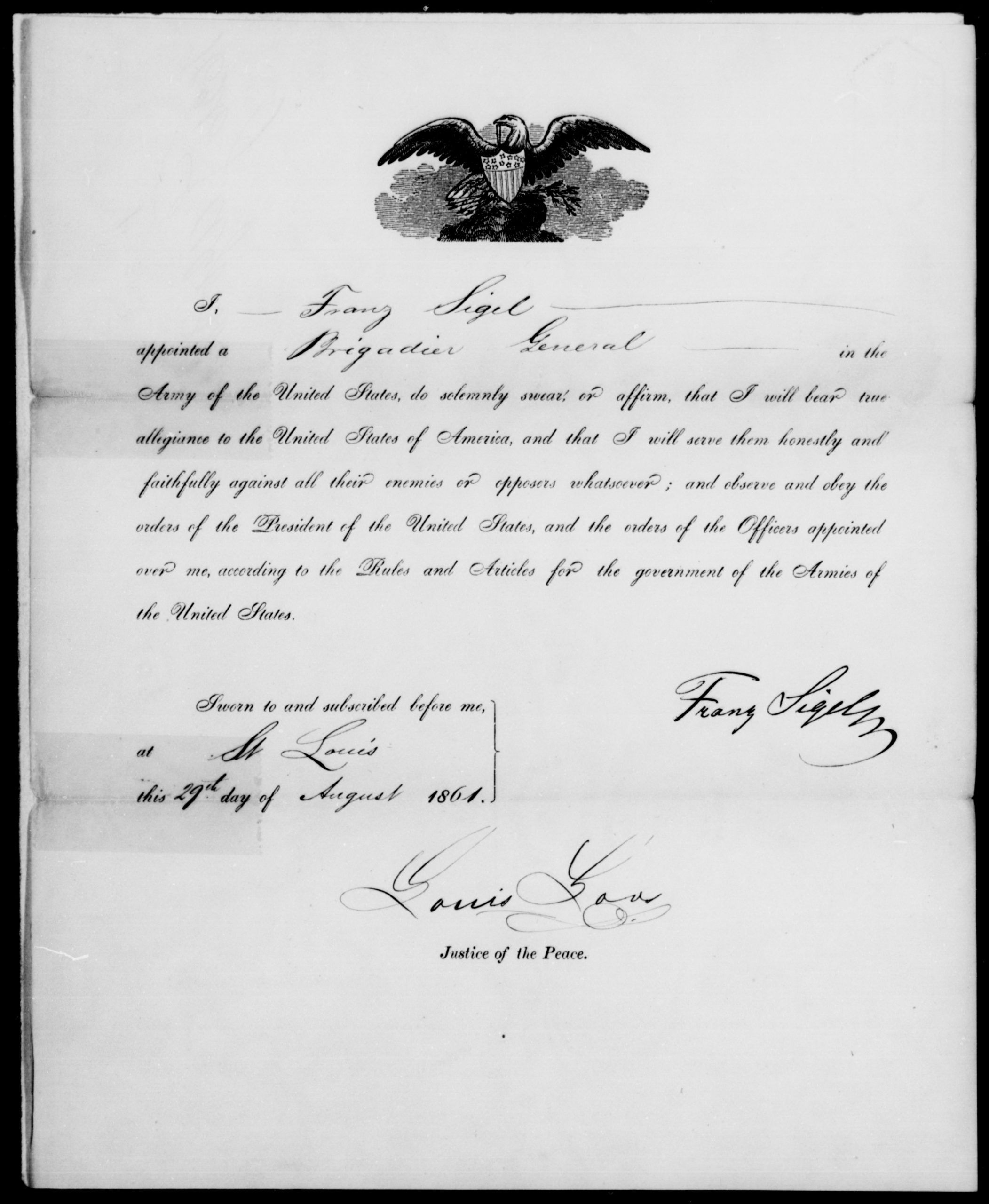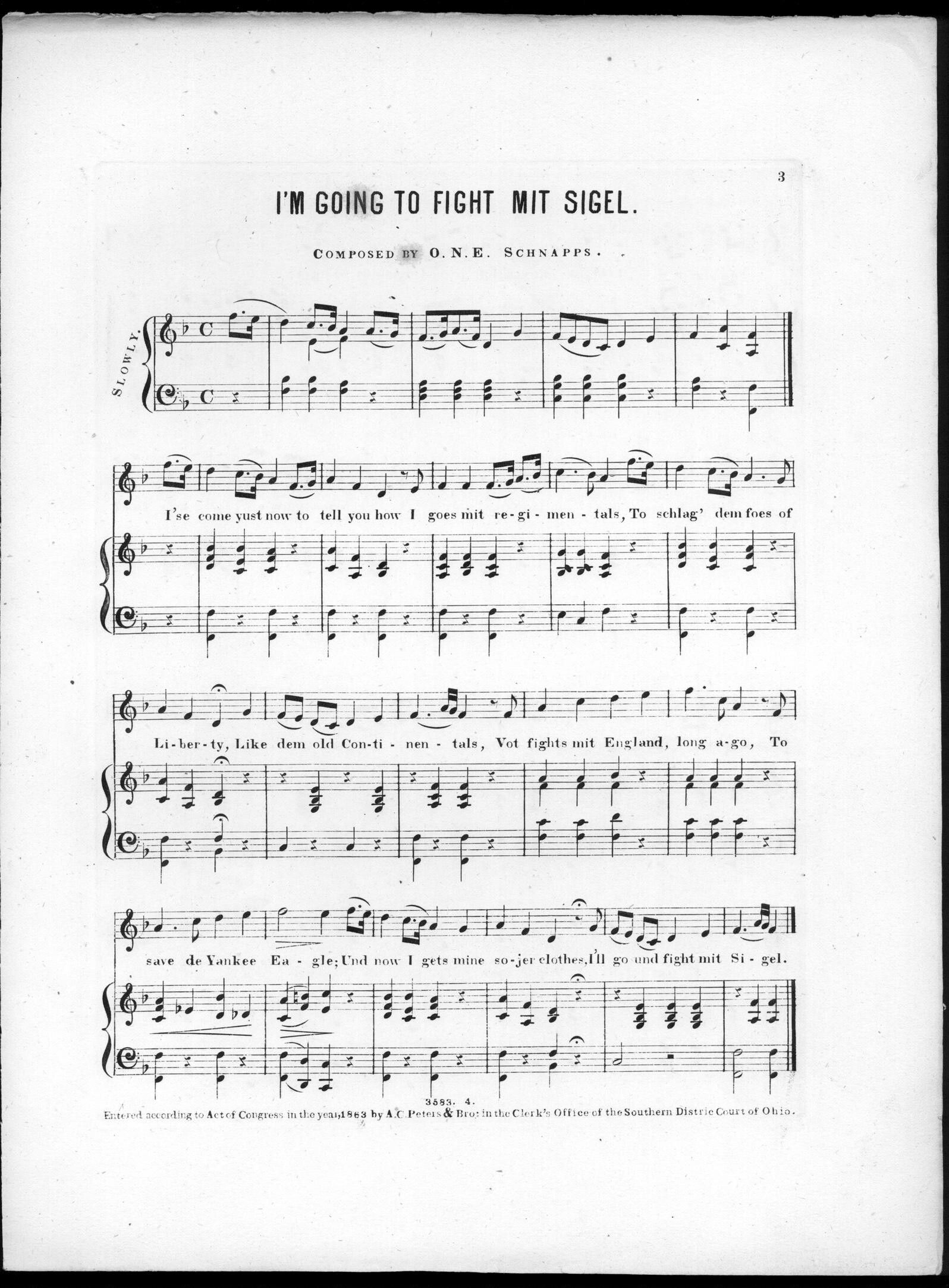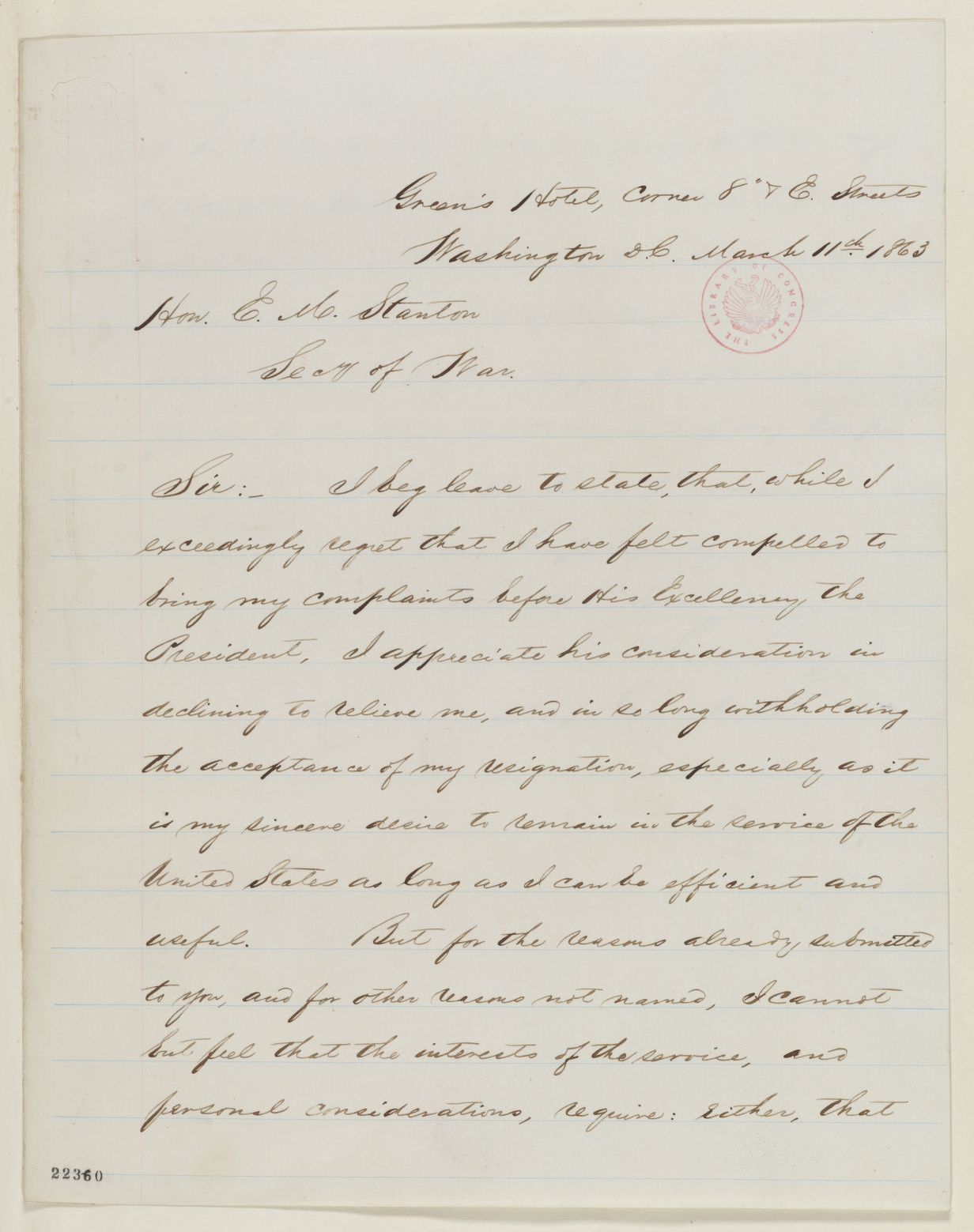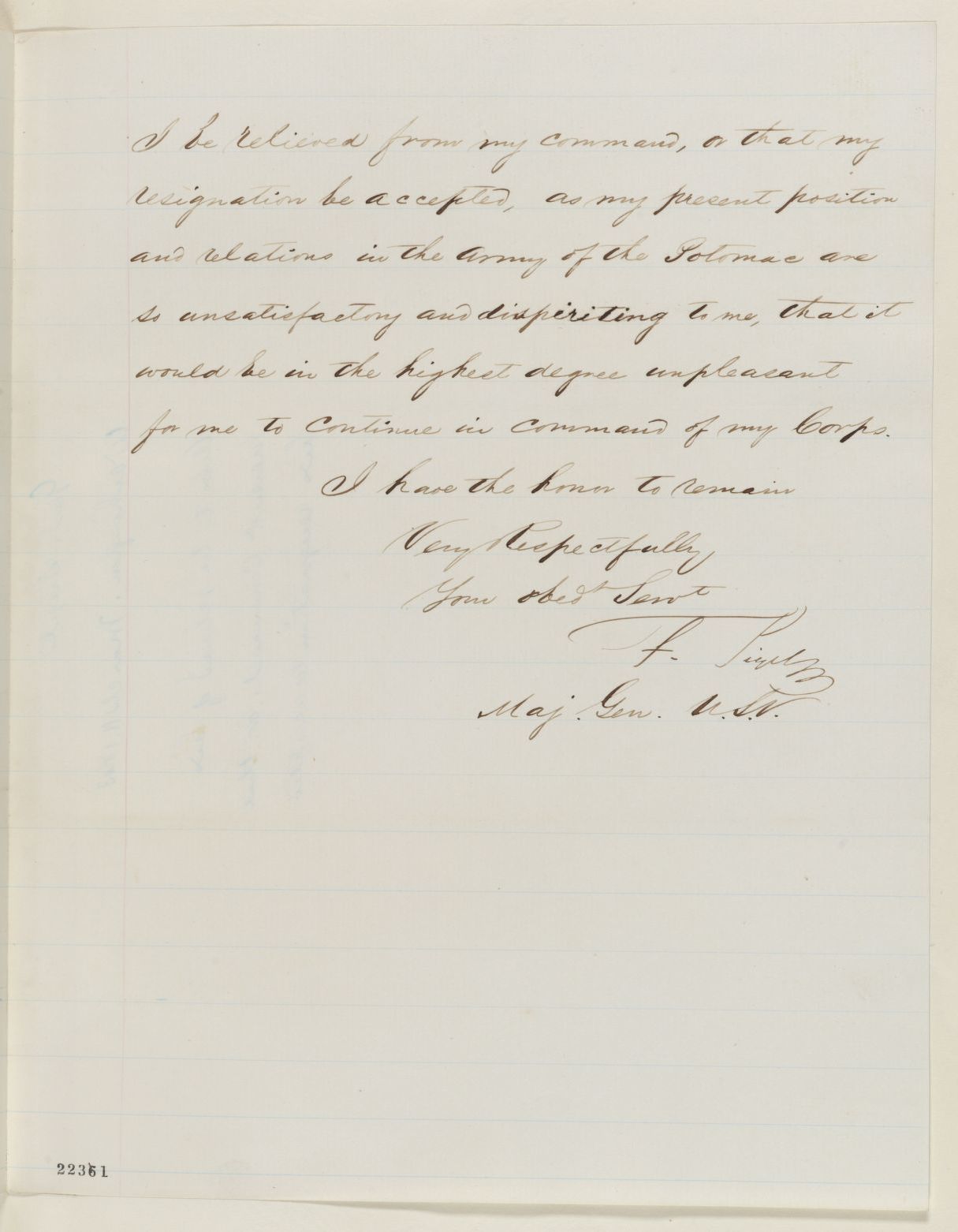Franz Sigel
Civil War
Biography
In 1824, Franz Sigel was born in Sinsheim, Baden, a very small town at the time, which today lies in southwest Germany. After completing his foundational education, he entered the Karlsruhe Military Academy to train for a career as an officer. Upon graduation in 1843 at the age of 19, Sigel joined the ranks of the army of the Grand Duke of Baden as a lieutenant after a superior display of skills in the academy. He served valiantly with the Baden Army, but he was frustrated with the strict social order that the military imposed, and resigned in 1847 after winning a duel against a higher-ranking officer who Sigel believed had wronged his friend.
Despite entering law school following his resignation, Franz Sigel would not stay away from battle for very long. Fueled by many of the same ideals that Sigel held, the Revolutions of 1848 took the German states by storm and people rose against the traditional, structured social order in favor of liberal social movements and personal freedoms, like the French had achieved in the 1700s. Largely led by thinkers, academics, and political activists, the movement lacked the militarial experience to engage in a complete revolution against the oppressive aristocratic governments. Sigel found himself in a perfect position because he had the necessary experience to lead in battle, while also holding the political views that the revolution fought for. During the revolution, he led the revolutionaries against the much superior Prussian forces, which dominated the Principality of Baden at the time, never coming out victorious, but nonetheless made a name for himself amongst sympathetic Germans as a brave leader. The revolution’s cause of fighting for freedoms for all was notably felt within the German-American community because they had received those rights upon immigrating, thus, Sigel was treated like a hero.
With the revolution’s failure, Sigel was forced to flee from Germany, and made his way to America in 1852. He settled in New York, and taught at his future father-in-law’s German-American school for five years, before moving to St. Louis in 1857, once again teaching at a German-American school. In both cities, he was active within the German immigrant community, volunteering with the local Turnverein, while also vocalizing his anti-nativist and anti-slavery beliefs, two widely held ideologies within the German-American community.
Due to these beliefs, at the outbreak of the Civil War in 1861, Franz Sigel volunteered for the Union Army, the side that vowed to fight for his causes. Based on his military experience in Europe, he was immediately appointed Colonel of the Third Missouri Infantry. His first action with the Union Army came in a skirmish known as the Camp Jackson affair. Serving under Brigadier General Nathaniel Lyon, the Union volunteer forces captured nearly 700 secessionist militiamen who were preparing to take the St. Louis arsenal for the Confederacy. This maneuver helped secure St. Louis and the state of Missouri for the Union. Later in the summer of 1861, he was promoted to Brigadier General and signed an oath of loyalty to the Union, which can be seen on the left. At this time, his units accompanied Lyon to Southwest Missouri to chase the Confederate forces out of the state, which resulted in the Battle of Wilson’s Creek where Lyon died in battle. Sigel took over command after Lyon’s death and launched a successful flank, but failed to follow up after receiving misinformation about the size of the Confederate Army he was facing, and conducted an unnecessary retreat.
After this failure, Franz Sigel resigned from his post because his command was much reduced, but outrage in the German-American community was so strong that his resignation was not accepted and Sigel returned to his command. Upon his return in early March 1862, he soon led Union forces in his greatest success in the Battle of Pea Ridge. He was given command of the 1st and 2nd Divisions of the Army of the Southwest and triumphantly defeated the opposing Confederate troops during the course of the two day engagement. Following this success, Franz Sigel was promoted to Major General and received a transfer to the Army of the Potomac. In the east, he took command of the I Corps, but in 1862 ran into defeat against Stonewall Jackson in the Shenandoah Valley and fell to forces commanded by Rober E. Lee at the Second Battle of Bull Run. As a result, Sigel was transferred to command the XI Corps of the Army of the Potomac, a much smaller unit that stayed in reserves when Sigel commanded it. This perceived insult to his ability became too much to handle after a few months, so Franz Sigel renewed his resignation in March of 1863 and this time it was accepted.
After resigning, Sigel briefly entered the political world, lobbying on behalf of the Republican Party, but a year later he took up a post in the military once again. He was placed in charge of the Department of West Virginia and returned again to the Shenandoah Valley. In May 1864, Sigel led his forces against the Confederates in the Battle of New Market and yet again was defeated. Much like in 1862 after failing to capture victory, he was transferred to command reserve forces that never saw any action. At the war’s end in 1865, Major General Franz Sigel left his command with the Union Army for the final time and did not serve again.
Although he rarely found success directly on the battlefield, Franz Sigel’s influence on the Union’s war effort extended far beyond tactical decisions. In the 1848 Revolutions, despite his militarial failures, Sigel was considered a hero for fighting for individual freedoms, and his larger than life status only grew during the Civil War. He became immortalized in the German-American community across the country during the war due to a popular tavern song entitled “I’m Going to Fight mit Sigel”. This rousing song encouraged Germans to “Schlag dem foes of Liberty” and to “go und fight mit Sigel,” which hundreds of thousands of German immigrants did. According to a report conducted by the United States Sanitary Commission in 1869, over 175,000 of the 2 million men who served for the Union whose birth countries are known were born in Germany, totaling the highest number of soldiers born outside of the United States from one country. This number also does not account for Germans whose birth place could not be identified, as well as for first or second generation German-Americans that still had strong ties to the German community in America, meaning the number is almost certainly much higher. Franz Sigel’s popularity, as a result of his involvement in the revolutions and the widely-popular song, granted him grace by President Lincoln for his tactical shortcomings which led to repeated battlefield failures. Vitally he roused Germans to volunteer for the Union Army, when many might have been hesitant otherwise, and manpower advantage played a huge factor in the Union’s preservation.
After the war, Sigel settled back into civilian life in New York City, returning to teaching and also writing numerous newspaper articles. In addition to these tasks, he took up many minor offices in city government. As a former officer in the Army, Sigel also received a yearly military pension of $100, which his wife took over upon his death at the age of 77 on August 21, 1902 after years of battling an illness. To this day, Franz Sigel is commemorated with statues at Riverside Park in Manhattan and at Forest Park in St. Louis, in addition to having a park near his residence in the Bronx being named in his honor.
Written by Thomas Crain
